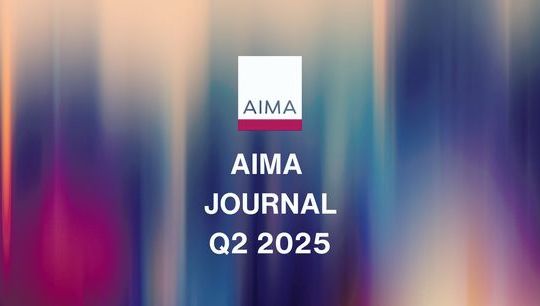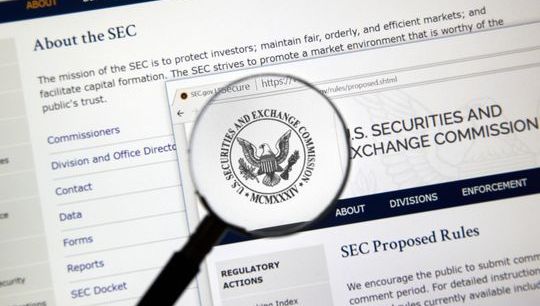Impact of the SEC's new marketing rule on private fund advisors
By Les Abromovitz, Foreside
Published: 20 September 2021
The US SEC’s Marketing Rule, adopted on 22 December 2020, expressly applies to certain communications with private fund investors and not just advisory clients of a registered investment advisor (RIA). As many of these communications now fall within the definition of ‘advertisement’, the rule will significantly impact the marketing efforts of private fund advisors. An SEC risk alert reported that over 36% of investment advisors registered with the Commission manage private funds.[1]
The Marketing Rule replaces the Advertising and Cash Solicitation Rules, found in Sections 206(4)-1 and 206(4)-3 of the Investment Advisers Act of 1940 (Advisers Act). Once private fund advisors implement the Marketing Rule, they are permitted to compensate promoters, publish testimonials and use social media with clear compliance standards to follow. Nevertheless, there are pitfalls that may trip up these advisors.
Definition of ‘advertisement’
The Marketing Rule amends the definition of ‘advertisement’, which includes two prongs: (1) traditional advertising communications; and (2) compensated testimonials and endorsements, as well as solicitation activities previously regulated by the Cash Solicitation Rule. Generally, the second prong applies to any endorsement or testimonial for which an advisor provides cash or non-cash compensation, directly or indirectly.
The amended definition of ‘advertisement’ includes any direct or indirect communication that an investment advisor makes to more than one person for the purpose of:
- Offering the RIA’s investment advisory services regarding securities to prospects or private fund investors; or
- Offering new investment advisory services regarding securities to current clients or private fund investors.
To be an advertisement, the direct or indirect communication must be made by an investment advisor to more than one person. If a communication to one person or more includes hypothetical performance, it generally falls within the definition. Nonetheless, there is an exclusion from the definition for communications that include hypothetical performance provided (1) in response to an unsolicited request from a prospective or current client or investor in a private fund or (2) to a prospective or current investor in a private fund in a one-on-one communication.
The first prong of the definition of ‘advertisement’ excludes most one-on-one communications, including presentations to existing clients regarding funds in which they have already invested. Nevertheless, even if a one-on-one communication to existing investors is not an advertisement, it may still violate the antifraud provisions found in the Advisers Act.
The second prong of the definition, which applies to testimonials and endorsements and solicitation activities, does not exclude extemporaneous, live, oral, or one-on-one communications.
Private Placement Memorandums (PPMs)
Both prongs of the definition of ‘advertisement’ include promotional materials sent to prospective investors in private funds managed by an advisor. Although PPMs, account statements, transaction reports and annual reports are not viewed as promotional materials, pitch books are subject to the Marketing Rule. For example, if a PPM contains related performance information of separate accounts managed by the advisor, that performance data is likely to be treated as an advertisement subject to the general and the performance-related prohibitions of the Marketing Rule.
Prohibitions in the Marketing Rule
The Marketing Rule contains the following principles-based general prohibitions on advertisements:
- Making an untrue statement of a material fact, or omitting a material fact that is necessary to make the statement made, not misleading under the circumstances;
- Making a material statement of fact that the advisor does not have a reasonable basis for believing it will be able to substantiate if requested to do so by the SEC;
- Including information that would reasonably be likely to cause an untrue or misleading implication or inference to be drawn concerning a material fact relating to the advisor;
- Discussing any potential benefits without providing fair and balanced treatment of any associated material risks or limitations;
- Referencing specific investment advice provided by the advisor that is not presented in a fair and balanced manner;
- Including or excluding performance results, or presenting performance periods, in a manner that is not fair and balanced; and
- Including information that is otherwise materially misleading.
Performance advertising raises special concerns that warrant additional requirements and restrictions. Inaccurate presentations of performance can cause reasonable investors to reach unwarranted assumptions. If so, the advertisement is misleading.
The Marketing Rule prevents RIAs from circulating the following performance-related advertisements:
- Gross performance, unless the advertisement also presents net performance;
- Any performance results, unless they are provided for specific periods in most circumstances, usually a one, five, and ten-year time frame;
- Any statement that the SEC has approved or reviewed any calculation or presentation of performance results;
- Performance results from fewer than all portfolios with substantially similar investment policies, objectives, and strategies as those being offered in the advertisement;
- Performance results of a subset of investments extracted from a portfolio, unless the advertisement provides, or offers to provide promptly, the performance results of the total portfolio; and
- Predecessor performance unless there is an appropriate similarity between the personnel and accounts at the predecessor RIA and the personnel and accounts at the current firm.
Advertisements of private fund returns must comply with the gross and net-of-fees requirements. Unlike other performance advertisement requirements, private fund advisors are not required to present one, five and ten-year returns. The SEC did not impose this requirement because presenting very recent performance would be misleading in some instances. Nevertheless, private fund advisors may not cherry-pick favourably performing periods, since the advertisement would not be fair and balanced.
Prohibitions on advertising hypothetical performance
Hypothetical performance may not be advertised unless:
- The advisor adopts and implements policies and procedures that are reasonably designed to ensure that the performance is relevant to the likely financial situation and investment objectives of the intended audience; and
- The advisor provides certain information underlying the hypothetical performance. When the intended audience is an investor in a private fund, the advisor’s obligation is to offer to provide this information promptly.
Hypothetical performance encompasses performance results that were not achieved by any portfolio (or fund) managed by the advisor. This includes model performance, targeted or projected performance, and back-tested performance.
Policies and procedures relating to the use of hypothetical performance should address how the advisor will limit dissemination of the advertisement to the intended audience, and how the advisor will determine whether the hypothetical performance is relevant to the likely financial situation and investment objectives of that audience. To make that determination, private fund advisors should consider experience raising money from investors. For example, their experience might indicate that prior investors valued a certain kind of hypothetical performance to assess the advisor’s strategy and investment process. New advisors can rely on other resources such as questionnaires, surveys, conversations, and academic research.
Solicitation activities
The Marketing Rule introduces the term, ‘promoters’, which replaces ‘solicitors’. Because the Marketing Rule now applies to the solicitation of private fund investors, placement agents, consultants, capital introduction groups, and other parties involved in marketing a private fund will likely be viewed as promoters.
‘Promoter’ also refers to a person providing a testimonial or endorsement, whether compensated or uncompensated. An RIA that uses testimonials or endorsements must oversee compliance with the Marketing Rule. The RIA must also enter into a written agreement with promoters unless the promoter is an affiliate or receives de minimis compensation, which is defined as US$1,000 or less, or the equivalent value in non-cash compensation during the preceding twelve months.
The Marketing Rule generally prohibits bad actors from acting as promoters. Broker-dealers registered with the Commission must not be subject to statutory disqualification under the Exchange Act. Compensated promoters covered by Rule 506(d) of Regulation D with respect to a Rule 506 securities offering are exempt from the disqualification provisions of Rule 206(4)-1 provided their involvement would not disqualify the offering under Rule 506. There are no disqualification provisions for providers of uncompensated testimonials and endorsements.
Advertisements must clearly and prominently disclose whether the person giving the testimonial or endorsement is a client and whether the individual is compensated. Disclosures must be at least as prominent as the testimonial or endorsement itself and must be included within the advertisement containing the testimonial or endorsement. Promoters of oral testimonials or endorsements must provide the disclosure at the time the statements are made. Required disclosures may be delivered to clients and/or investors by either the advisor or the person providing the endorsement or testimonial. If the advisor does not provide the disclosures, it must hold a reasonable belief that the promoter is satisfying this requirement.
Takeaways
The Marketing Rule does not require review or preapproval of advertisements by a designated employee. Nevertheless, internal pre-review and approval can serve as an effective component of an advisor’s compliance programme. Another option is to spot-check advertisements, including social media, and conduct periodic reviews. Private fund advisors may wish to mandate preapproval until personnel are fully trained and all policies and procedures have been implemented. The compliance date for the rule is 4 November 2022.










